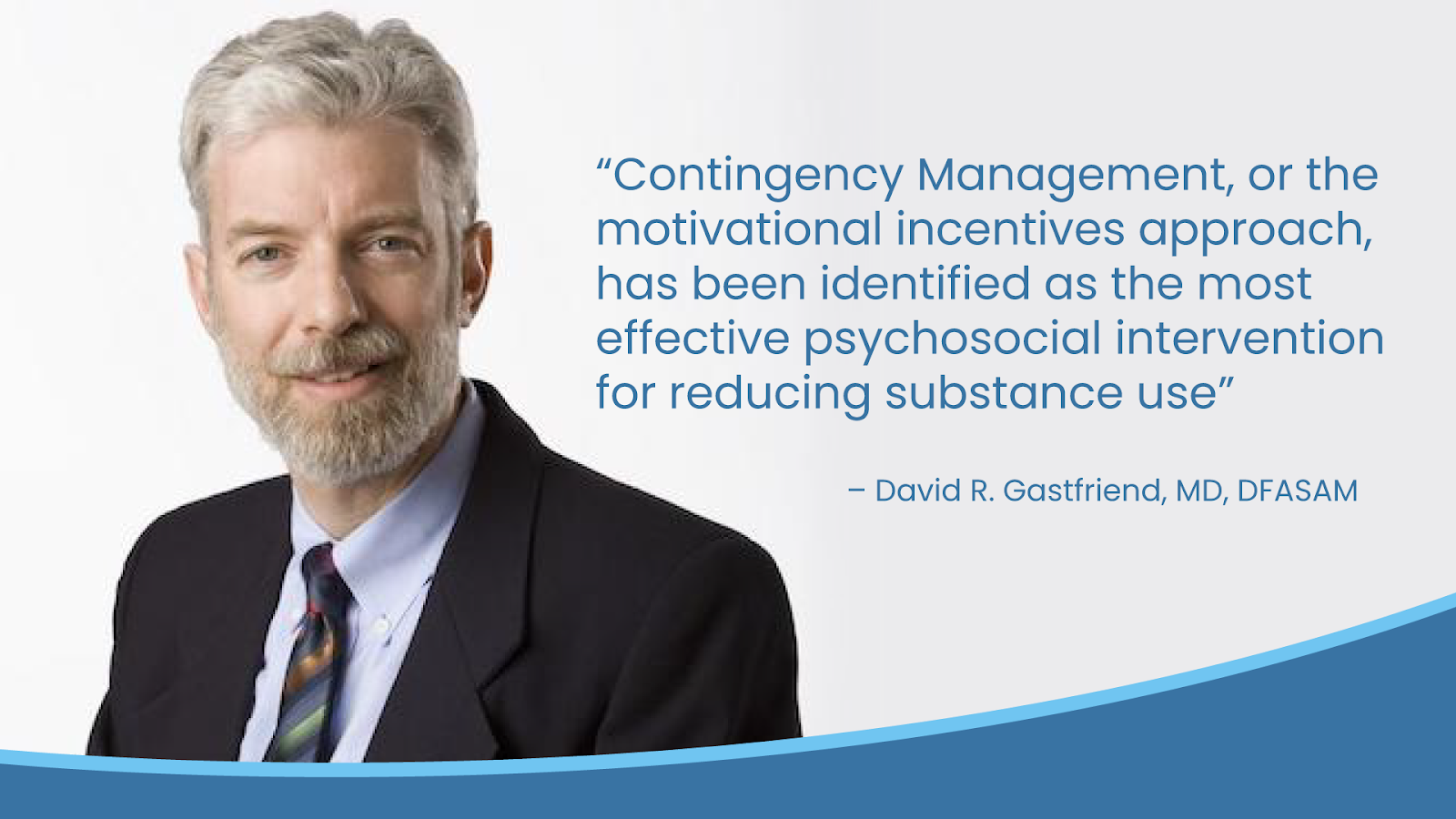What is Contingency Management?
Contingency Management (CM) leverages the power of incentives for recovery and is the foundation of DynamiCare’s rewards-based approach.
CM is one of the most effective and evidence-based psychosocial treatments for substance use disorders. In over 100 randomized controlled trials and 9 meta-analyses (see footnote 1), CM significantly enhances outcomes.
Despite proven success, CM is used by less than 10% of U.S. treatment programs (see footnote 2). Practical barriers to adoption include lack of funds, the frequent drug testing required, lack of training for staff, and the difficulty of managing the rewards.
DynamiCare solves obstacles that have prevented CM’s adoption by using a fully automated, convenient platform that includes random substance tests, GPS treatment attendance tracking, and accountable monetary rewards.
Our goal is to make CM easy and accessible for researchers everywhere, and contribute to this critical and growing field.
Dr. Gastfriend, an addiction psychiatrist and Distinguished American Society of Addiction Medicine (ASAM) Fellow, has written a comprehensive guide on CM. Download Dr. Gastfriend’s guide below to learn how CM can provide the tools needed for organizations to assist their members in controlling addictive behaviors.






